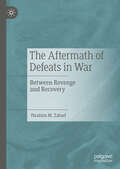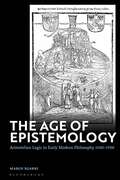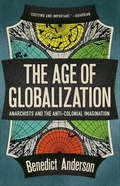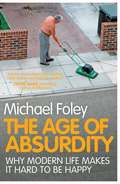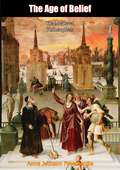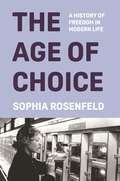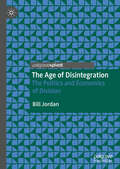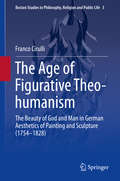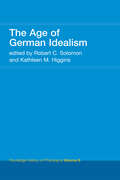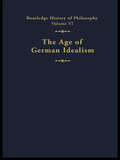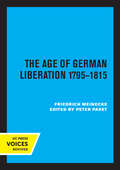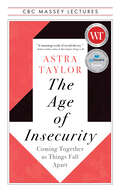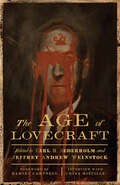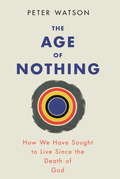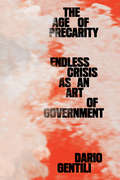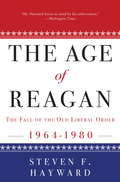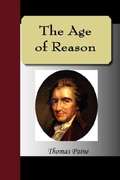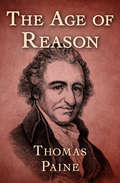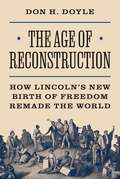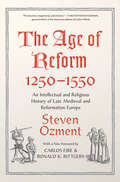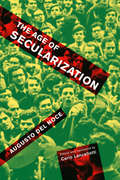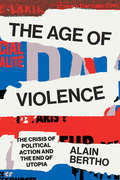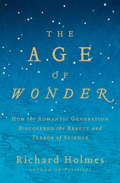- Table View
- List View
The Aftermath of Defeats in War: Between Revenge and Recovery
by Ibrahim M. ZabadThis book sets out to explain the variation in nations’ reactions to their defeats in war. Typically, we observe two broad reactions to defeat: an inward-oriented response that accepts defeat as a reality and utilizes it as an opportunity for a new beginning, and an outward-oriented one that rejects defeat and invests national energies in restoring what was lost—most likely by force. This volume argues that although defeats in wars are humiliating experiences, those sentiments do not necessarily trigger aggressive nationalism, empower radical parties, and create revisionist foreign policy. Post-defeat, radicalization will be actualized only if it is filtered through three variables: national self-images (inflated or realistic), political parties (strong or weak), and international opportunities and constraints. The author tests this theory on four detailed case studies, Egypt (1967), Turkey/Ottoman Empire, Hungary and Bulgaria (WWI), and Islamic fundamentalism.
The Age Of Epistemology: Aristotelian Logic In Early Modern Philosophy 1500-1700
by Marco SgarbiMarco Sgarbi tells a new history of epistemology from the Renaissance to Newton through the impact of Aristotelian scientific doctrines on key figures including Galileo Galilei, Thomas Hobbes, René Descartes, John Locke, Gottfried Wilhelm Leibniz and Isaac Newton. This history illuminates the debates philosophers had on deduction, meditation, regressus, syllogism, experiment and observation, the certainty of mathematics and the foundations of scientific knowledge. Sgarbi focuses on the Aristotelian education key philosophers received, providing a concrete historical framework through which to read epistemological re-definitions, developments and transformations over three centuries. The Age of Epistemology further highlights how Aristotelianism itself changed over time by absorbing doctrines from other philosophical traditions and generating a variety of interpretations in the process.
The Age Of Globalization
by Benedict AndersonHistory is forged through the travel of ideas across continents--as well as by bombs. The Age of Globalization is an account of the unlikely connections that made up late nineteenth-century politics and culture, and in particular between militant anarchists in Europe and the Americas, and anti-imperialist uprisings in Cuba, China and Japan. Told through the complex intellectual interactions of two great Filipino writers--the political novelist José Rizal and the pioneering folklorist Isabelo de los Reyes--The Age of Globalization is a brilliantly original work on how global exchanges shaped the nationalist movements of the time.
The Age of Absurdity: Why Modern Life makes it Hard to be Happy
by Michael FoleyThe good news is that the great thinkers from history have proposed the same strategies for happiness and fulfilment. The bad news is that these turn out to be the very things most discouraged by contemporary culture. This knotty dilemma is the subject of TheAge ofAbsurdity- a wry and accessible investigation into how the desirable states of wellbeing and satisfaction are constantly undermined by modern life. Michael Foley examines the elusive condition of happiness common to philosophy, spiritual teachings and contemporary psychology, then shows how these are becoming increasingly difficult to apply in a world of high expectations. The common challenges of earning a living, maintaining a relationship and ageing are becoming battlegrounds of existential angst and self-loathing in a culture that demands conspicuous consumption, high-octane partnerships and perpetual youth. In conclusion, rather than denouncing and rejecting the age, Foley presents an entertaining strategy of not just accepting but embracing today's world - finding happiness in its absurdity.
The Age of Belief: The Medieval Philosophers
by Anne Jackson FreemantleDuring the thousand-year span of the Middle Ages, philosophers discussed the eternal questions of mankind within the most unified society known to Western culture, linked by a single religious faith which encompassed all European life. Inside this framework, scholars drew upon Greek thought and Christian revelation, exploring the nature of being, the problem of fate versus free will, and various views of ultimate reality. This perceptive book by a noted author and critic traces the great arguments of Medieval philosophy through the writings of major thinkers like St. Augustine, St. Thomas Aquinas, Boethius and Abelard.
The Age of Choice: A History of Freedom in Modern Life
by Sophia RosenfeldA sweeping history of the rise of personal choice in the modern world and how it became equated with freedomChoice touches virtually every aspect of our lives, from what to buy and where to live to whom to love, what profession to practice, and even what to believe. But the option to choose in such matters was not something we always possessed or even aspired to. At the same time, we have been warned by everybody from marketing gurus to psychologists about the negative consequences stemming from our current obsession with choice. It turns out that not only are we not very good at realizing our personal desires, we are also overwhelmed with too many possibilities and anxious about what best to select. There are social costs too. How did all this happen? The Age of Choice tells the long history of the invention of choice as the defining feature of modern freedom.Taking readers from the seventeenth century to today, Sophia Rosenfeld describes how the early modern world witnessed the simultaneous rise of shopping as an activity and religious freedom as a matter of being able to pick one&’s convictions. Similarly, she traces the history of choice in romantic life, politics, and the ideals of human rights. Throughout, she pays particular attention to the lives of women, those often with the fewest choices, who have frequently been the drivers of this change. She concludes with an exploration of how reproductive rights have become a symbolic flashpoint in our contemporary struggles over the association of liberty with choice.Drawing on a wealth of sources ranging from novels and restaurant menus to the latest scientific findings about choice in psychology and economics, The Age of Choice urges us to rethink the meaning of choice and its promise and limitations in modern life.
The Age of Disintegration: The Politics and Economics of Division
by Bill JordanThis book addresses the disintegration of collective units of all kinds, under the twin pressures of economic globalisation and technological automation. At the level of super-states, the constituent nations of the European Union and the former Soviet Union, and of the United Kingdom, have demonstrated this dynamic; and their constituent groups, associations and communities have done so too. The author analyses the causes and consequences of these processes, at the global, national and local levels, the significance of increased mobility and migration, and the politics of resistance to some damaging effects. He recommends ways in which public policy can offset some of the latter, including radical changes in tax-benefits systems, already being trialled in several countries worldwide.
The Age of Figurative Theo-humanism
by Franco CirulliThis is a comprehensive, integrated account of eighteenth and early nineteenth century German figurative aesthetics. The author focuses on the theologically-minded discourse on the visual arts that unfolded in Germany, circa 1754-1828, to critique the assumption that German romanticism and idealism pursued a formalist worship of beauty and of unbridled artistic autonomy. This book foregrounds what the author terms an "Aesthetics of Figurative Theo humanism". It begins with the sculptural aesthetics of Johann Joachim Winckelmann and Gottfried Herder before moving on to Karl Philipp Moritz, Wilhelm Heinrich Wackenroder and Friedrich Schelling. The reader will discover how this aesthetic tradition, after an initial obsession with classical sculpture, chose painting as the medium more suited to the modern self's exploration of transcendence. This paradigm-shift is traced in the aesthetic discourse of Friedrich Schlegel and Georg Wilhelm Friedrich Hegel. In this work, the widespread prejudice that such aesthetics initiated a so-called "Modern Grand Narrative of the Arts" is deconstructed. One accusation directed at 18th century aesthetics has been that it realised into "Art" what had previously been a living, rich tissue of meaning: this work shows how Figurative Theo humanism's attention to aesthetic values was never detached from deeper theological and humanistic considerations. Furthermore, it argues that this aesthetic discourse never forgot that it emerged from modern disenchantment--far from occluding the dimension of secularization, it draws poignant meaning from it. Anyone with an interest in the current debates about the scope and nature of aesthetics(philosophers of art, theology, or religion) will find this book of great interest and assistance.
The Age of German Idealism: Routledge History of Philosophy Volume 6 (Routledge History Of Philosophy Ser.)
by Robert C. Solomon Kathleen M. HigginsGerman Idealism was one of the most fertile and important movements in the history of Western philosophy. This volume includes eleven chapters on all aspects and the period's most influential philosophers, including Kant and Hegel.
The Age of German Idealism: Routledge History of Philosophy Volume VI (Routledge History of Philosophy #Vol. 6)
by Robert C. Solomon Kathleen M. HigginsThe turn of the nineteenth century marked a rich and exciting explosion of philosophical energy and talent. The enormity of the revolution set off in philosophy by Immanuel Kant was comparable, by Kant's own estimation, with the Copernican Revolution that ended the Middle Ages. The movement he set in motion, the fast-moving and often cantankerous dialectic of `German Idealism', inspired some of the most creative philosophers in modern times: including G.W.F. Hegel and Arthur Schopenhauer as well as those who reacted against Kant - Marx and Kierkegaard, for example.This volume traces the emergence of German Idealism from Kant and his predecessors through the first half of the nineteenth century, ending with the irrationalism of Kierkegaard. It provides a broad, scholarly introduction to this period for students of philosophy and related disciplines, as well as some original interpretations of these authors. Each chapter is written by a distinguished scholar in the field. A glossary of technical terms together with a chronological table of philosophical, scientific and other important cultural events are provided.
The Age of German Liberation 1795-1815
by Friedrich MeineckeThis title is part of UC Press's Voices Revived program, which commemorates University of California Press’s mission to seek out and cultivate the brightest minds and give them voice, reach, and impact. Drawing on a backlist dating to 1893, Voices Revived makes high-quality, peer-reviewed scholarship accessible once again using print-on-demand technology. This title was originally published in 1977.
The Age of Insecurity: Coming Together as Things Fall Apart (The CBC Massey Lectures)
by Astra TaylorThese days, everyone feels insecure. We are financially stressed and emotionally overwhelmed. The status quo isn’t working for anyone, even those who appear to have it all. What is going on? In this urgent cultural diagnosis, author and activist Astra Taylor exposes how seemingly disparate crises—rising inequality and declining mental health, the ecological emergency, and the threat of authoritarianism—originate from a social order built on insecurity. From home ownership and education to the wellness industry and policing, many of the institutions and systems that promise to make us more secure actually undermine us. Mixing social critique, memoir, history, political analysis, and philosophy, this genre-bending book rethinks both insecurity and security from the ground up. By facing our existential insecurity and embracing our vulnerability, Taylor argues, we can begin to develop more caring, inclusive, and sustainable forms of security to help us better weather the challenges ahead. The Age of Insecurity will transform how you understand yourself and society—while illuminating a path toward meaningful change.
The Age of Lovecraft
by Carl H. Sederholm Jeffrey Andrew WeinstockCo-winner, Ray & Pat Browne Award for Best Edited Collection in Popular Culture and American Culture Howard Phillips Lovecraft, the American author of &“weird tales&” who died in 1937 impoverished and relatively unknown, has become a twenty-first-century star, cropping up in places both anticipated and unexpected. Authors, filmmakers, and shapers of popular culture like Stephen King, Neil Gaiman, and Guillermo del Toro acknowledge his influence; his fiction is key to the work of posthuman philosophers and cultural critics such as Graham Harman and Eugene Thacker; and Lovecraft&’s creations have achieved unprecedented cultural ubiquity, even showing up on the animated program South Park.The Age of Lovecraft is the first sustained analysis of Lovecraft in relation to twenty-first-century critical theory and culture, delving into troubling aspects of his thought and writings. With contributions from scholars including Gothic expert David Punter, historian W. Scott Poole, musicologist Isabella van Elferen, and philosopher of the posthuman Patricia MacCormack, this wide-ranging volume brings together thinkers from an array of disciplines to consider Lovecraft&’s contemporary cultural presence and its implications. Bookended by a preface from horror fiction luminary Ramsey Campbell and an extended interview with the central author of the New Weird, China Miéville, the collection addresses the question of &“why Lovecraft, why now?&” through a variety of approaches and angles. A must for scholars, students, and theoretically inclined readers interested in Lovecraft, popular culture, and intellectual trends, The Age of Lovecraft offers the most thorough examination of Lovecraft&’s place in contemporary philosophy and critical theory to date as it seeks to shed light on the larger phenomenon of the dominance of weird fiction in the twenty-first century.Contributors: Jessica George; Brian Johnson, Carleton U; James Kneale, U College London; Patricia MacCormack, Anglia Ruskin U, Cambridge; Jed Mayer, SUNY New Paltz; China Miéville, Warwick U; W. Scott Poole, College of Charleston; David Punter, U of Bristol; David Simmons, Northampton U; Isabella van Elferen, Kingston U London.
The Age of Nothing: How We Have Sought To Live Since The Death of God
by Peter WatsonThe closing months of 2008 saw the world's nations united in financial uncertainty. Amid endless reports of collapsing stock markets, failed banks, fiscal fraud and snowballing unemployment, THE AGE OF NOTHING offers a compelling insight into the demise of capitalism and the beginning of a new era.Peter Watson's scintillating thesis argues that the unprecedented credit crunch of 2008 was the result of a fundamental change in the fabric of society - one that became truly visible only as it reached its culmination.In a commanding narrative, Watson provides a historical perspective on the shift in our attitudes towards capitalism, while exploring the philosophical roots that underpin it. Of central importance in Watson's theory is Nietzsche's warning regarding mankind's responsibility for 'the death of God' - and the consequences thereof. Nietzsche's views on the frailty of human values in a world bereft of religious faith were echoed by writers including Tolstoy, Marx and Kandinsky - and his chilling message went on to resonate with thinkers throughout the 20th century. When Max Weber called the modern world 'disenchanted', and argued that society must choose to create a new value system based on knowledge or else surrender and embrace a religious faith, he was the latest in a long line of intellectuals attempting to address the problem Nietzsche had laid bare.With the arrival of THE AGE OF NOTHING, the line continues. The work fills a crucial gap in our intellectual history and serves as a comprehensive study of society's current predicament - as well as a timely answer to the question of what to do next.
The Age of Nothing: How We Have Sought To Live Since The Death of God
by Peter WatsonThe closing months of 2008 saw the world's nations united in financial uncertainty. Amid endless reports of collapsing stock markets, failed banks, fiscal fraud and snowballing unemployment, THE AGE OF NOTHING offers a compelling insight into the demise of capitalism and the beginning of a new era.Peter Watson's scintillating thesis argues that the unprecedented credit crunch of 2008 was the result of a fundamental change in the fabric of society - one that became truly visible only as it reached its culmination.In a commanding narrative, Watson provides a historical perspective on the shift in our attitudes towards capitalism, while exploring the philosophical roots that underpin it. Of central importance in Watson's theory is Nietzsche's warning regarding mankind's responsibility for 'the death of God' - and the consequences thereof. Nietzsche's views on the frailty of human values in a world bereft of religious faith were echoed by writers including Tolstoy, Marx and Kandinsky - and his chilling message went on to resonate with thinkers throughout the 20th century. When Max Weber called the modern world 'disenchanted', and argued that society must choose to create a new value system based on knowledge or else surrender and embrace a religious faith, he was the latest in a long line of intellectuals attempting to address the problem Nietzsche had laid bare.With the arrival of THE AGE OF NOTHING, the line continues. The work fills a crucial gap in our intellectual history and serves as a comprehensive study of society's current predicament - as well as a timely answer to the question of what to do next.
The Age of Precarity: Endless Crisis as an Art of Government
by Dario GentiliWhen Crisis Becomes the Norm: What Can We Do to Demand Change?Crisis dominates the present historical moment. The economy is in crisis, politics in both its past and present forms is in crisis and our own individual lives are in crisis, made vulnerable by the fluctuations of the labor market and by the undoing of social and political ties we inherited from modernity. Yet, traditional views of crises as just temporary setbacks do not seem to hold any longer; this crisis seems permanent, with no way out and no alternatives on the horizon.Reconstructing a political genealogy of the term from the Greek world to today's neoliberalism, this book demonstrates that crisis, understood as a "choice" between revolution and conservation, is a peculiarity of the modern era that does not apply to the present day. However, since its origin, the trope of crisis has proven to be one of the most effective instruments of social discipline and administration. The analytical trajectory followed by this book - which spans from Plato to Hayek, from the juridical and medical science of antiquity to the current technocracy, passing through the "weapons of criticism" of Marx and Gramsci - finally identifies, following Benjamin and Foucault, precariousness as the "form of life" that characterizes crisis understood as an art of government. But we still need to answer the question: "How can we recreate the possibility of political alternatives?"
The Age of Reagan: The Fall of the Old Liberal Order, 1964-1980
by Steven F. HaywardThe Age of Reagan brings to life the tumultuous decade and a half that preceded Ronald Reagan's ascent to the White House. Drawing on scores of interviews and years of research, Steven F. Hayward takes us on an engrossing journey through the most politically divisive years the United States has had to endure since the decade before the Civil War. Hayward captures an America at war with itself--and an era whose reverberations we feel to this very day. He brings new insight into the profound failure of Lyndon Johnson's Great Society, the oddly liberal nature of Richard Nixon's administration, the significance of Reagan's years as California's governor, the sudden-death drama of his near defeat of Gerald Ford in the 1976 Republican primary, the listlessness of Jimmy Carter's leadership, and the political earthquake that was Reagan's victorious presidential campaign in 1980. Provocative, authoritative, and majestic in scope, The Age of Reagan is an unforgettable account of the rebirth and triumph of the American spirit.
The Age of Reason: Being An Investigation Of True And Fabulous Theology - Primary Source Edition
by Thomas PaineThe author of Rights of Man and Common Sense argues for belief in God without religion.My own mind is my own church. In The Age of Reason, political activist and Founding Father Thomas Paine makes a powerful case for a rational approach to theology. In keeping with the intellectual tradition of British Deism, Paine rejects the notion of divine revelation, saying &“it is revelation to the first person only, and hearsay to every other.&” He proceeds with a detailed analysis of the Bible&’s inconsistencies and historical inaccuracies to conclude that it cannot be a divinely inspired text. Arguing against all forms of organized religion, he declares nature itself to be the only true testament to the existence of a divine creator. Originally published in three parts, in 1794, 1795, and 1807, The Age of Reason was a major influence on the freethinker movement in the United States. In Britain, however, it was declared seditious and led to the arrest of those who dared to print and distribute it. This ebook has been professionally proofread to ensure accuracy and readability on all devices.
The Age of Reconstruction: How Lincoln’s New Birth of Freedom Remade the World (America in the World #59)
by Don H. DoyleA sweeping history of how Union victory in the American Civil War inspired democratic reforms, revolutions, and emancipation movements in Europe and the AmericasThe Age of Reconstruction looks beyond post–Civil War America to tell the story of how Union victory and Lincoln’s assassination set off a dramatic international reaction that drove European empires out of the Americas, hastened the end of slavery in Latin America, and ignited a host of democratic reforms in Europe.In this international history of Reconstruction, Don Doyle chronicles the world events inspired by the Civil War. Between 1865 and 1870, France withdrew from Mexico, Russia sold Alaska to the United States, and Britain proclaimed the new state of Canada. British workers demanded more voting rights, Spain toppled Queen Isabella II and ended slavery in its Caribbean colonies, Cubans rose against Spanish rule, France overthrew Napoleon III, and the kingdom of Pope Pius IX fell before the Italian Risorgimento. Some European liberals, including Victor Hugo and Giuseppe Mazzini, even called for a “United States of Europe.” Yet for all its achievements and optimism, this “new birth of freedom” was short-lived. By the 1890s, Reconstruction had been undone in the United States and abroad and America had become an exclusionary democracy based on white supremacy—and a very different kind of model to the world.At home and abroad, America’s Reconstruction was, as W.E.B. Du Bois wrote, “the greatest and most important step toward world democracy of all men of all races ever taken in the modern world.” The Age of Reconstruction is a bracing history of a remarkable period when democracy, having survived the great test of the Civil War, was ascendant around the Atlantic world.
The Age of Reform, 1250-1550: An Intellectual and Religious History of Late Medieval and Reformation Europe
by Steven OzmentCelebrating the fortieth anniversary of this seminal book, this new edition includes an illuminating foreword by Carlos Eire and Ronald K. Rittges The seeds of the swift and sweeping religious movement that reshaped European thought in the 1500s were sown in the late Middle Ages. In this book, Steven Ozment traces the growth and dissemination of dissenting intellectual trends through three centuries to their explosive burgeoning in the Reformations—both Protestant and Catholic—of the sixteenth century. He elucidates with great clarity the complex philosophical and theological issues that inspired antagonistic schools, traditions, and movements from Aquinas to Calvin. This masterly synthesis of the intellectual and religious history of the period illuminates the impact of late medieval ideas on early modern society. With a new foreword by Carlos Eire and Ronald K. Rittgers, this modern classic is ripe for rediscovery by a new generation of students and scholars.
The Age of Responsibility: Luck, Choice, and the Welfare State
by Yascha MounkYascha Mounk shows why a focus on personal responsibility is wrong and counterproductive: it distracts us from the larger economic forces determining aggregate outcomes, ignores what we owe fellow citizens regardless of their choices, and blinds us to key values such as the desire to live in a society of equals. In this book he proposes a remedy.
The Age of Secularization (McGill-Queen's Studies in the History of Ideas #107)
by Augusto Del Noce Carlo LancellottiAugusto Del Noce is widely considered one of Italy’s foremost philosophers and political thinkers in the second half of the twentieth century. He is also remembered as an original and profound cultural critic, and in particular as a great scholar of the process of secularization that took place in the West during the 1960s. A collection of eleven essays and lectures by Del Noce that originally appeared between 1964 and 1969, and which the author published as a book in 1971, The Age of Secularization quickly became recognized as one of the most original and penetrating attempts to interpret the cultural and political turmoil of the period. In its pages Del Noce discusses, among other topics, the student protests of 1968, the counterculture of the 1960s, the significance of the sexual revolution, the nature of the technological society, and the relationship between Christianity and modern culture. The Age of Secularization documents the encounter between a key period of contemporary history and the full intellectual maturity of one of its most perceptive observers. It makes available to English-language readers a lasting reflection on the philosophical roots of contemporary culture, and it is just as illuminating and topical today as it was nearly fifty years ago.
The Age of Violence: The Crisis of Political Action and the End of Utopia
by Alain BerthoExploring the fury of the young in a world or crisis that seems to offer no alternatives"Only martyrs know neither pity nor fear. Believe me, the day when the martyrs are victorious will be the day of universal conflagration". Jacques Lacan made this gloomy prophesy back in 1959: but doesn't it also apply to our own time? Faced with a rise in attacks around the world, can we really just blame the 'radicalization of' Islam'? What hope is there for the alienated youth, as the wars that have ravaged the Middle East spill out across the globe?For Alain Bertho, the mounting chaos we see today is above all driven by the weakening of states' legitimacy under the pressure of globalization. Add to this the hypocrisy of the elites who beat the drum of 'security measures', even as they sow the seeds of violence around the world. This disorder is the swamp of despair which can only produce fresh atrocities.Today's youth are the lost children of neoliberal globalization, the inheritors of the political and human chaos it produces. When they find it easier to imagine the end of the world than the end of capitalism, their revolt tends to take the paths of martyrdom and despair. The closing of the revolutionary hypothesis allows only fury. The answer, Bertho argues, is a new radicalism, able to inspire a collective hope in the future.
The Age of Wonder: How the Romantic Generation Discovered the Beauty and Terror of Science
by Richard HolmesThe Age of Wonder is a colorful and utterly absorbing history of the men and women whose discoveries and inventions at the end of the eighteenth century gave birth to the Romantic Age of Science. When young Joseph Banks stepped onto a Tahitian beach in 1769, he hoped to discover Paradise. Inspired by the scientific ferment sweeping through Britain, the botanist had sailed with Captain Cook in search of new worlds. Other voyages of discovery—astronomical, chemical, poetical, philosophical—swiftly follow in Richard Holmes's thrilling evocation of the second scientific revolution. Through the lives of William Herschel and his sister Caroline, who forever changed the public conception of the solar system; of Humphry Davy, whose near-suicidal gas experiments revolutionized chemistry; and of the great Romantic writers, from Mary Shelley to Coleridge and Keats, who were inspired by the scientific breakthroughs of their day, Holmes brings to life the era in which we first realized both the awe-inspiring and the frightening possibilities of science—an era whose consequences are with us still.BONUS MATERIAL: This ebook edition includes an excerpt from Richard Holmes's Falling Upwards.
